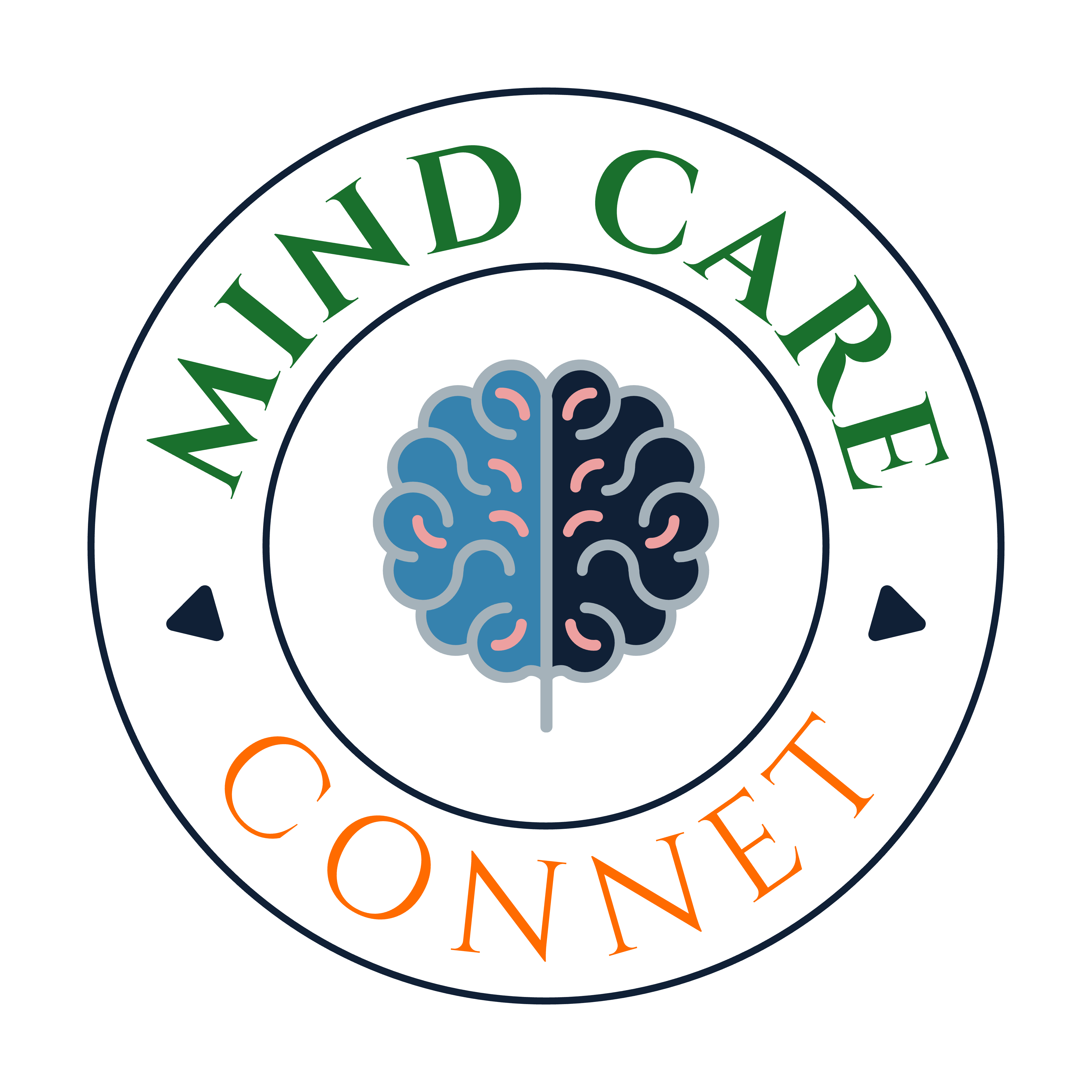Anxieties
Mind Care Connect Anxieties Details

Anxiety is a universal human experience. Yet, when feelings of intense fear and distress become so overpowering that they hinder our ability to carry out routine tasks, it may indicate the presence of an anxiety disorder. In the United States, anxiety disorders stand as the most prevalent mental health issue, affecting an estimated 40 million adults, which accounts for 18% of the population. Additionally, around 8% of school-age children and teenagers grapple with the challenges of anxiety disorders, impacting their performance both in educational settings and at home.
Symptoms
Just like with any mental illness, people with anxiety disorders experience symptoms differently. But for most people, anxiety changes how they function day-to-day. People can experience one or more of the following symptoms:
Motional symptoms: Feelings of apprehension or dread, feeling tense and jumpy, Restlessness or irritability, Anticipating the worst and being watchful for signs of danger.
Physical symptoms: Pounding or racing heart and shortness of breath, upset stomach, Sweating, tremors and twitches, headaches, fatigue and insomnia, upset stomach, frequent urination or diarrhea.
Known facts
Types of Anxiety Disorders:
Different anxiety disorders have various symptoms. This also means that each type of anxiety disorder has its own treatment plan. The most common anxiety disorders include:
- Generalized Anxiety Disorder (GAD):People with GAD experience excessive and chronic worry about a wide range of everyday events or activities. This worry is often difficult to control and can lead to physical symptoms such as muscle tension, restlessness, and fatigue.
- Panic Disorder:Panic Disorder: Individuals with panic disorder experience recurrent and unexpected panic attacks, which are intense episodes of fear or discomfort accompanied by physical symptoms like a racing heart, sweating, and trembling. They may also develop a fear of having more panic attacks, which can lead to avoidance behaviors.
- Social Anxiety Disorder (Social Phobia): Social anxiety disorder is characterized by an intense fear of social or performance situations where the person may be scrutinized or judged by others. This fear can lead to avoidance of social situations and significant distress.
- Agoraphobia: Agoraphobia involves a fear of being in situations or places where escape might be difficult or embarrassing, should a panic attack or other distressing symptoms occur. This fear often leads to avoidance of public spaces or crowded areas.
A person experiencing social anxiety disorder may find it challenging to engage in conversations, share thoughts in class discussions, or contribute their ideas, often leading to feelings of isolation and withdrawal.
Consultation Form
Please click and fill the anxieties consultation form
About
Welcome to Mind CareConnet, where your mental well-being is our top priority. We are a team of dedicated and compassionate psychiatric practitioners committed to providing you with the highest quality mental health care.
Our Services includes but is not limited to: psychiatric evaluationsMedication managementPsychotherapyStress and anxiety managementDepression treatmentMood disordersADHD diagnosis and treatmentand more.
Contact
1301 E. Debbie Lane 102,
#2272, Mansfield,
TX 76063.
Copyright © 2024 Mind Care Connect by UmarFaruq
